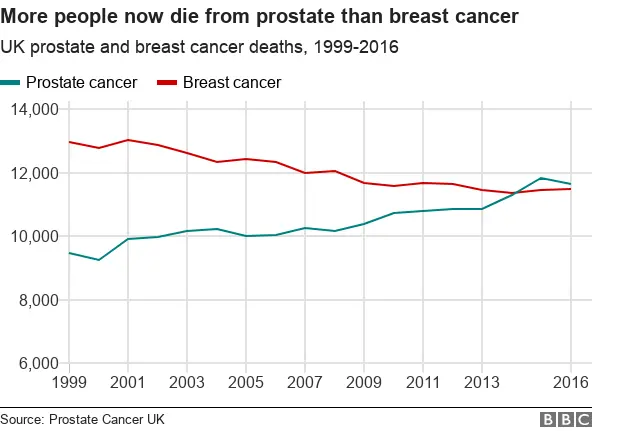'Fry and Turnbull effect' on prostate cancer
Hospitals are seeing and treating more men with prostate cancer, partly thanks to celebrities raising awareness of the disease by speaking out about their own experiences, says the head of the NHS.
NHS chief Simon Stevens will today thank former BBC Breakfast presenter Bill Turnbull and broadcaster Stephen Fry for the work they have done in urging men to come forward for help.
Both had treatment earlier this year.
Mr Stevens said they were "owed a debt of gratitude."
Allow X content?
Latest figures show that from April to July 2018, 14,479 patients received treatment for a urological cancer - an increase of 3,929 (36%) compared to the same period in 2017.

And there were 70,000 visits to the NHS website advice page on prostate cancer in March, a 250% increase from the monthly average of around 20,000.
Mr Stevens said there would be £10m of additional investment for hospitals to increase their capacity to treat more patients with the disease.
"This additional investment will help ensure the NHS can manage this jump in demand, so that all people with suspected cancer are tested and treated quickly," he said.

The jump in demand also coincided with media coverage about the number of people dying from prostate cancer overtaking deaths from breast cancer.
What are the symptoms?
There can be few symptoms of prostate cancer in the early stages, and because of its location most symptoms are linked to urination:
- needing to urinate more often, especially at night
- needing to run to the toilet
- difficulty in starting to urinate
- weak urine flow or taking a long time while urinating
- feeling your bladder has not emptied fully
Men with male relatives who have had prostate cancer, black men and men over 50 are at higher risk of getting the disease.
